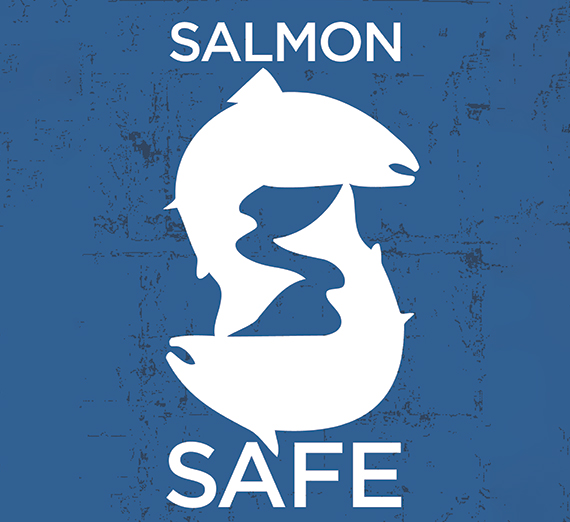Gonzaga Earns Salmon-Safe Certification

Gonzaga University has been awarded Salmon-Safe certification from environmental organization Salmon-Safe, meaning the University’s campus demonstrates a high level of environmental stewardship and will continue to do so into the future.
The Portland-based nonprofit Salmon-Safe works with public and private landowners to promote green stormwater infrastructure, urban habitat enhancement, water conservation, and protection of downstream water quality. Sites achieve Salmon-Safe certification for design, development and operations that meet peer-reviewed standards for protection of watershed health.
Since 2005, more than 100 urban sites have transitioned to Salmon-Safe certifications including higher education campuses ranging from University of Washington and Portland State University to WSU Vancouver and now, Gonzaga University.
To commemorate and celebrate this certification and ongoing work with Salmon-Safe, The Gonzaga University Office of Sustainability will be hosting an event in the John J. Hemmingson Center on April 15 at 2 p.m. in the Joan Jundt Lounge. Dan Kent and Brian Muegge from Salmon-Safe will be speaking at the event, alongside Gonzaga’s Director of Sustainability Jim Simon, other representatives of the University, and members from the city of Spokane including Marlene Feist of Public Works.
The certification process consisted of a comprehensive campus-wide assessment with Salmon-Safe’s independent science team. In its report, the science team noted some of the following areas in which the University is excelling:
- Stormwater from campus is ultimately used to recharge the Spokane Valley-Rathdrum Prairie aquifer, the primary source of drinking water for people living in and around Spokane
- Roof runoff is routed to grass swales, while parking lot and street runoff is directed to rain gardens or dry wells
- Campus landscaping design consists of mainly native and drought-tolerant species
Having made considerable steps towards becoming a Salmon-Safe site, there are eight conditions the University must work to meet to be in ongoing compliance with the certification. These include, but are not limited to:
- Avoid use of exterior building materials that introduce metals toxic to salmonids
- Develop water conservation plan and track net water usage
- Modify fertilizer use to avoid use of any containing phosphorus
- Conduct feasibility study for Lake Arthur enhancement projects
By implementing these conditions, and more, Gonzaga can contribute to the conservation and protection of the Redband trout in the Spokane River.
“This certification is poised to be a transformational model for how we reimagine our relationship with the landscape of Gonzaga University and the Spokane River,” says Jim Simon, director of Gonzaga’s Office of Sustainability. “I am excited to work with Salmon-Safe, students, faculty and Plant Services to implement the projects the organization has identified over the next few years.”
Salmon-Safe’s engagement in this project is supported in part by US EPA’s Columbia Basin Restoration Program.
